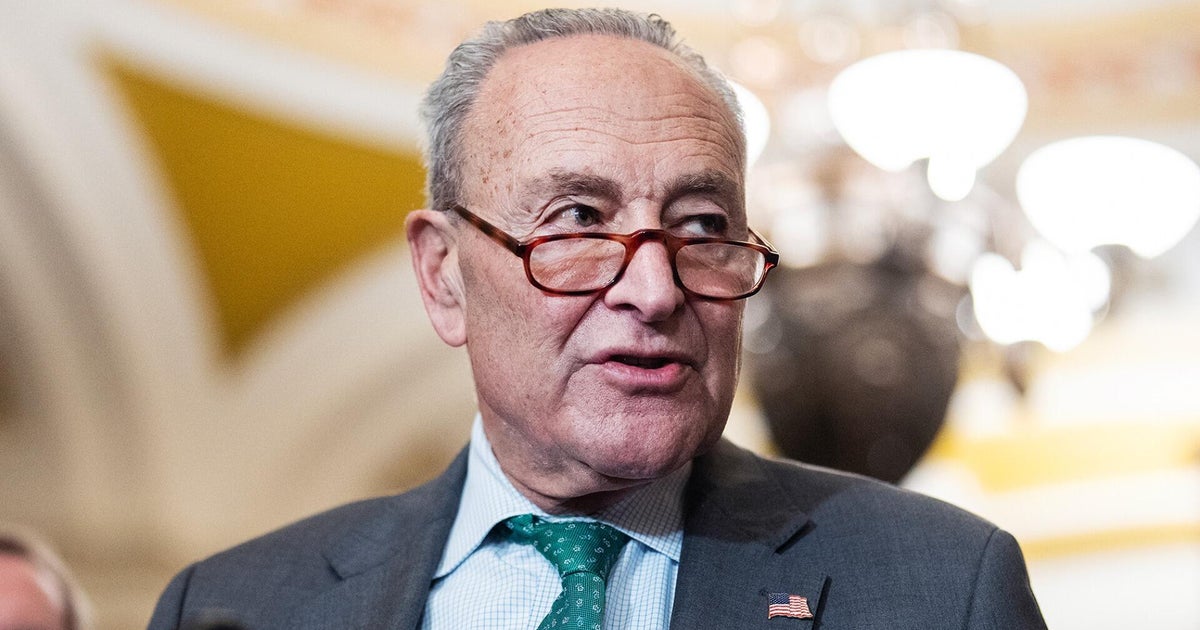
Senate Democrats, led by Minority Leader Chuck Schumer, pulled out a rare and time-consuming procedural maneuver over the weekend in a last-ditch effort to stall President Donald Trump’s highly touted “Big Beautiful Bill” from advancing through the chamber.
But despite their best efforts, the bill passed a critical procedural hurdle, bringing Trump’s massive legislative package one step closer to a final Senate vote.
The spectacle unfolded late Saturday into Sunday, when Schumer ordered Senate clerks to perform a nearly unheard-of task: read the entire 940-page bill aloud on the Senate floor.
This tactic, intended to delay the legislative process and publicly highlight what Democrats characterize as a deeply flawed piece of legislation, dragged on for nearly 16 hours.
It was an old-school form of political obstruction that had not been seen since 2021, when Senator Ron Johnson (R-Wis.) demanded the full reading of President Joe Biden’s American Rescue Plan.
Schumer took to social media during the reading marathon, posting on X (formerly Twitter) that “Republicans are squirming,” while quipping, “I know damn well they haven’t read the bill, so we’re going to make them.”
His comment was a sharp jab at the GOP, although critics were quick to point out the hypocrisy—Democrats have been equally notorious for advancing massive pieces of legislation without thorough internal review.
Schumer’s maneuver, while certainly theatrical, did little to change the bill’s trajectory. Once the reading was finally complete, the Senate immediately entered a 20-hour debate phase, evenly split between Republicans and Democrats.

Senate Democrats have vowed to use their full allotment of time, continuing to rail against the bill’s provisions on health care, taxes, and federal spending. Meanwhile, Republicans are expected to use only a few hours, preferring to expedite the process as they remain confident in their majority.
Despite the procedural victory, the road to final passage is not entirely smooth for Republicans. Senate Majority Leader John Thune (R-S.D.) is navigating internal party divisions that could complicate the bill’s future.
Key senators remain skeptical of the bill in its current form, with concerns centered largely on its Medicaid provisions and broader fiscal implications.
Senator Thom Tillis (R-N.C.), who has been a vocal critic of the bill, reinforced his opposition publicly, declaring that he would not support final passage unless significant amendments are made to the Medicaid elements of the legislation.
His defiance comes despite considerable pressure from President Trump and Republican leadership, including the threat of facing a primary challenger if he continues to oppose the bill.
Tillis has, however, dampened that threat by announcing his retirement at the end of his term, opting to step away rather than engage in what could be a bruising primary fight within his own party. His departure adds another layer of uncertainty to the GOP’s internal dynamics, especially on contentious issues like Medicaid reform.
Senator Susan Collins (R-Maine) has also indicated that her support is not guaranteed for final passage. Although she voted in favor of the initial procedural motion to advance the bill, she has publicly called for “meaningful revisions,” particularly to the Medicaid provider tax rate, which she believes needs a more equitable adjustment to protect state-level healthcare funding.
A bloc of fiscal conservatives within the Senate is also pushing back, advocating for deeper spending cuts to what they view as an already bloated package. These fiscal hawks delayed Saturday night’s procedural vote as they engaged in intense negotiations with Thune and Vice President JD Vance, who has taken an active role in shepherding the bill through the Senate.
Their focus centers on the Federal Medical Assistance Percentage (FMAP), the formula used to determine the federal government’s contribution to state Medicaid programs.

The push to amend FMAP calculations has proven divisive. While the fiscal conservatives argue that the current formula encourages states to inflate Medicaid spending, other Republicans warn that altering it too aggressively could destabilize state healthcare systems and alienate key constituencies.
Nevertheless, Trump and his allies in the Senate have managed to maintain momentum. The President celebrated the procedural victory following a grueling four-hour vote session, calling it a triumph for fiscal responsibility and a necessary corrective to what he continues to describe as the “disasters” of the Biden era.
“We’re cleaning up Biden’s mess—open borders, endless wars, runaway deficits,” Trump said in a statement after the vote. “The Big Beautiful Bill is a major step toward putting America back on the right track.”
Senator Ron Johnson, who switched his vote from ‘no’ to ‘yes’ during the process, emphasized that the bill, while imperfect, represents a critical starting point for addressing the nation’s fiscal challenges.
“Biden and the Democrats left behind enormous messes that we are trying to clean up—an open border, wars, and massive deficits,” Johnson said. “After working for weeks with President Trump and his highly capable economic team, I am convinced that he views this as a necessary first step and will support my efforts to help put America on a path to fiscal sustainability.”
Ultimately, the procedural vote passed narrowly, 51-49, with only Senators Tillis and Rand Paul (R-Ky.) breaking ranks and voting against the bill. Republicans currently hold a 53-47 majority in the Senate, giving them some breathing room, but the final passage remains a delicate endeavor.
Senator Paul, true to his libertarian-leaning principles, criticized the bill’s overall spending levels and accused his party of abandoning genuine fiscal conservatism.
“This bill spends too much, borrows too much, and reforms too little,” Paul said on the Senate floor. “We cannot keep kicking the can down the road while pretending to care about our nation’s fiscal health.”

Meanwhile, as Senate Republicans manage dissent within their own ranks, Democrats continue to frame the bill as an attack on healthcare, social services, and the most vulnerable Americans.
They have used the debate time to highlight specific elements of the bill they claim will reduce Medicaid funding, jeopardize rural healthcare access, and exacerbate inequality.
Senate Minority Leader Schumer remained adamant in his opposition even after his procedural delay tactic ran its course. He vowed that Democrats would continue to fight the bill in debate and, if necessary, in the public square.
“This bill is a disaster for working families, for healthcare, for seniors, and for the middle class,” Schumer stated. “We are not going to let it pass quietly. The American people deserve to know what is in it, even if it takes 16 hours to read every last word.”
Despite the fierce resistance, the Trump administration is confident that the bill will ultimately clear the Senate and move on to the House, where Speaker Jim Jordan has signaled enthusiastic support.
The House, with a Republican majority aligned closely with Trump, is expected to pass the bill with relative ease compared to the Senate’s more fractious proceedings.
For Trump, the “Big Beautiful Bill” is more than just legislation—it is a symbolic validation of his return to the presidency and his promise to reverse what he views as the structural decay initiated during the Biden administration.
Whether this legislative behemoth will live up to its ambitions remains to be seen, but for now, Trump and Senate Republicans are pressing forward, determined to deliver what they see as a landmark victory for their agenda.

As the debate clock winds down, attention will soon shift to final negotiations and potential amendments that could sway holdouts like Collins and Tillis. But the message from the White House and Republican leadership is clear: the time for delay is over, and the era of the “Big Beautiful Bill” is just beginning.



-1755772981-q80.webp)